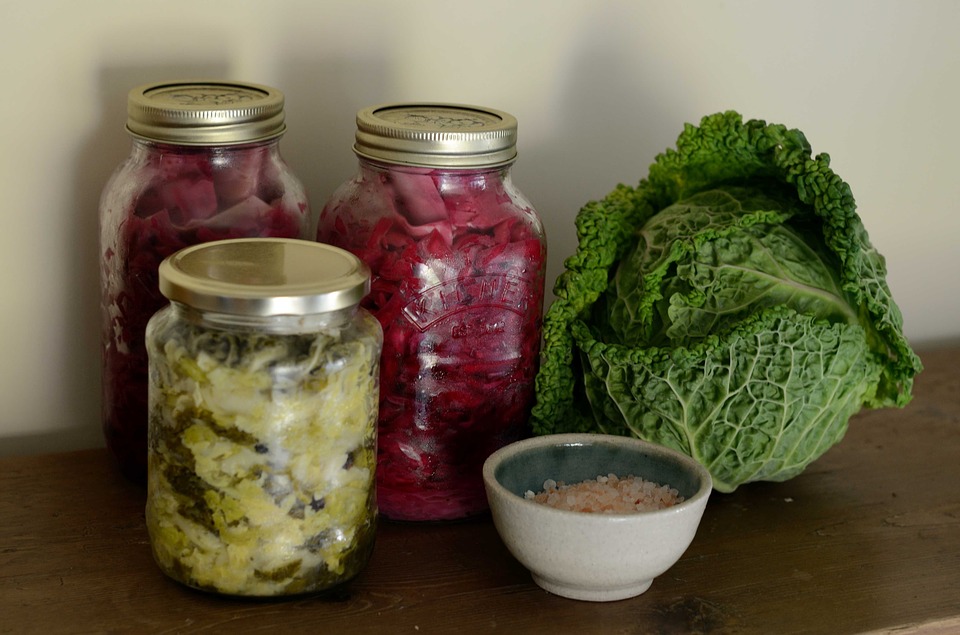Probiotics as a term has been bandied about for decades now, but they have never been more important to one’s diet as they are now. Sedentary lifestyles, addiction to gadgets, dependence on processed/ready to eat foods for energy, added sugar and HFCS in everything, the lure of junk food and instant gratification: all of these have led to urban lifestyle related chronic conditions like insulin resistance, chronic inflammation in the body, obesity, T2DM, chronic fatigue syndrome, etc. And the key thing that drives these away — a gut with healthy flora/microbiota that has the potential to digest anything you put into it — is suffering.
Simply put, probiotics are living microorganisms that keep your gut healthy, thriving, and working hard to rid your body of toxins. And while you can take supplements to get your daily recommended probiotic intake, as with everything else, it’s best to consume natural probiotics to reap their full range of benefits. Instead of resorting to detoxing, just introduce these natural probiotics to your daily diet.
You will also have heard of prebiotics: these are the precursors, in that they are food for probiotics for your gut to function to its full capacity. From an earlier blog post: Just apply the same logic to them as you would with “pro-biotics”. Probiotics are pro living microorganisms like bacteria, and pre-biotics are those foods that are food for these helpful microflora. Isn’t that amazing? A kind of a food ecosystem for those friendly bacteria in your belly! That is to say, prebiotics are the foods that allow, nay, help probiotics do their work. And when there is a chronic lack of probiotics in your diet, you could develop the dreaded leaky gut syndrome.
I am aware that not all of us can eat everything. Every single human body will have its own quirks and tolerances for foods. But surprisingly enough, most of us, if not all of us, need probiotics. Natural probiotics don’t warrant categorization either under allergens or trigger foods. In fact, natural probiotics might well be what you have been missing out on in your diet. Most cuisines tend to balance out their diets with fermented foods. Culturally, this has been a no-brainer for ages. But just in case you don’t quite like the taste of something, here is the full list of what I know to be probiotic foods that work. Treat yourself to a cup of one of these everyday, and prepare to be thrilled with the results just one month from now.
Natural Probiotics: The Full Monty (With links to our favorite recipes)
- Kimchi: “Kimchi is a traditional Korean dish made of seasoned vegetables and salt. Koreans eat it at nearly every meal. It can be fresh, like a salad, or it can be fermented. While the most popular variety is spicy kimchi made of cabbage, there are hundreds of different types of kimchi made of different vegetables, and not all of them spicy. Kimchi is also a main ingredient in many other Korean dishes.”
- Sauerkraut: “Sauerkraut is often one of the first fermentation projects recommended to curious DIY-ers, and with good reason: It’s beyond easy to make, it requires very little special equipment, and the results are dependably delicious. All you need to do is combine shredded cabbage with some salt and pack it into a container — a crock if you have one and want to make a lot of sauerkraut, but a mason jar will do just fine for small batches. The cabbage releases liquid, creating its own brining solution. Submerged in this liquid for a period of several days or weeks, the cabbage slowly ferments into the crunchy, sour condiment we know and love as sauerkraut.”
- Yogurt: Need we say any more about yogurt, the wonder food? Greek yogurt is best as it is low in sugar and moderately high in protein and fat. Stay away from the sweetened ones – plain yogurt is the way to go. Look for those with live cultures of the bacteria. Or you can make them at home.
- Kefir: From The Kitchn: “It’s extremely simple. Add about a teaspoon of these kefir grains to a cup of milk, cover the glass, and let it sit out at room temperature for about 24 hours. During this time, the healthy bacterias and yeast in the kefir grains will ferment the milk, preventing it from spoiling while transforming it into kefir.” You can use regular milk or nut milk to make kefir.
- Dark chocolate: Look for 85% cocoa and above to get the maximum benefits. Something I have always maintained. Chocolate IS good for you. Just move on to the dark side.
- Miso Soup
- Micro algae like spirulina and chlorella
- Pickles: Nope, no link. If you don’t know how to make pickles by now…
- Tempeh: Enjoy these great tempeh recipes!
- Kombucha: Seven reasons to drink kombucha every day by Dr. Axe.
Add prebiotics to your diet regularly, and give ’em probiotics the punch they need to thrive in your gut. List below:
- Jerusalem Artichokes
- Dandelion greens
- Raw garlic/onion/leek
- Cooked onion
- Asparagus
- Legumes like black beans, kidney beans, garbanzo beans, etc.
- Chia seeds
- Flax seeds
- Raw banana
- Wheat or oat bran
- Whole grains
- Milk (Has a prebiotic called Lactulose)
- Raw Chicory (Get your neighbourhood coffee place to grind some up in your coffee next time.)
- Mung bean
- Raw jicama
- Apples
- Crucifers like cabbage, kale, broccoli, kolrabi, cauliflower, etc.

